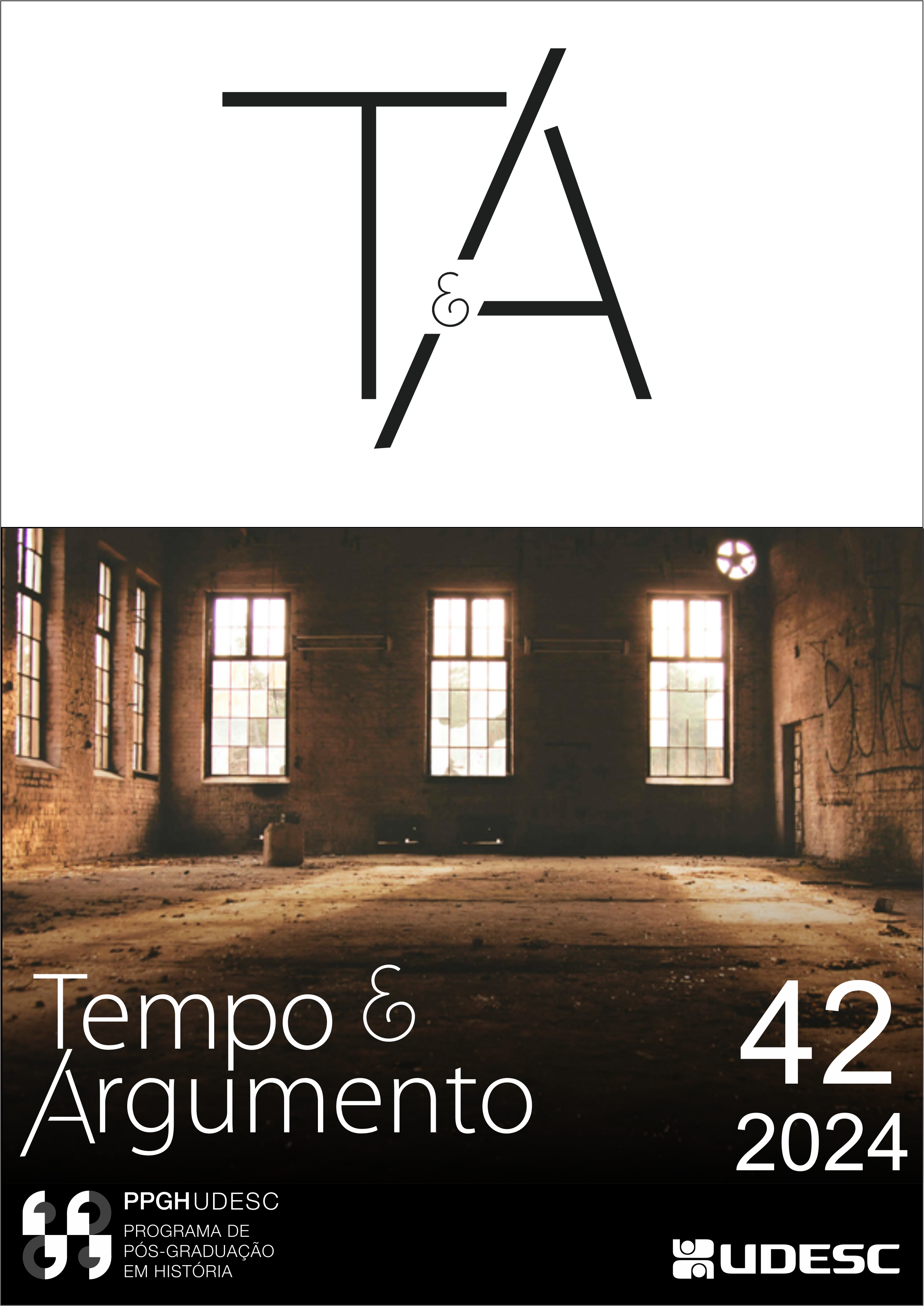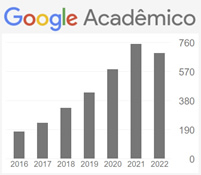Between Oyó and Ilé-Ifè: the impact of Yoruba history on the reconfigurations of the heritage field in the South Atlantic (Nigeria/Brazil)
DOI:
https://doi.org/10.5965/2175180316422024e0101Keywords:
Candomblé, Religious Heritage, Nigeria, Diaspora, BrazilAbstract
This article aims to analyse the construction of Afro-diasporic heritages between Nigeria and Brazil, showing how Yoruba history is reactivated in the cultural exchanges between the two sides of the Atlantic Ocean. We will see that in Nigeria today, the heritagization of monuments, cultural practices or natural sites has become a new weapon to reaffirm the supremacy of the main Yoruba traditional authorities. In these processes, "religion" occupies a central position in safeguarding Yoruba cultural traditions. But for Yoruba religion to become "heritage," it must first be thought of as "culture". The processes of selecting representations of Yoruba cultural heritage are thus activated on the shifting boundaries that separate religion and culture. Today, the role of the "diaspora" is crucial in recognising the heritage value of religious practices and monuments in Yoruba territory, building a transnational Afro-religious space.
Downloads
References
ABREU, Regina. Quando o campo é o patrimônio : notas sobre a participação de antropólogos nas questões do patrimônio. Sociedade e Cultura, Goiânia, v. 8, n. 2, 2005. p. 37-52.
ALEXANDER, M. Jacqui. Pedagogies of crossing: meditations on feminism, sexual politics, memory, and the sacred. Durham: Duke University Press, 2005.
ARGYRIADIS, Kali; CAPONE, Stefania (eds.). La religion des orisha: un champ social transnational en pleine recomposition. Paris : Hermann Editions, 2011.
APTER, Andrew, Black critics & kings: the hermeneutics of power in Yoruba society. Chicago: The University of Chicago Press, 1992.
ASAD, Talal. Genealogies of religion: discipline and reasons of power in Christianity and Islam. Baltimore: John Hopkins University Press, 1993.
CAPONE, Stefania. La quête de l’Afrique dans le candomblé : pouvoir et tradition au Brésil. Paris : Karthala, 1999.
CAPONE, Stefania. Os Yoruba do Novo Mundo: religião, etnicidade e nacionalismo negro nos Estados Unidos. Rio de Janeiro: Pallas, 2011.
CAPONE, Stefania. Connexions diasporiques : Réseaux artistiques et construction d’un patrimoine culturel ‘afro’. In: CAPONE, Stefania; MORAIS, Mariana Ramos de (eds.). Les Carnets du Lahic 11, dossiê Afro-patrimoines. Culture afro-brésilienne et dynamiques patrimoniales. Paris: Lahic : IIAC: EHESS, 2015. p. 238-265.
CAPONE, Stefania. The pai-de-santo and the babalawo: religious interaction and ritual rearrangements within orisha religion. In: OLUPONA, Jacob; ABIODUN, Rowland (eds.). Ifá divination, knowledge, power, and performance. Bloomington: Indiana University Press, 2016a. p. 223-245.
CAPONE, Stefania. Reafricanization in Afro-Brazilian religions: rethinking religious syncretism. In: ENGLER, Steven; SCHIMDT, Bettina (eds.). The brill handbook of contemporary religions in Brazil. Leiden: Brill, 2016b. p. 472-488.
CAPONE, Stefania. A busca da África no candomblé: tradição e poder no Brasil. 2 ed. Rio de Janeiro: Pallas, 2018a.
CAPONE, Stefania. Yoruba Religion. In: GOOREN, Henri (ed.). Encyclopedia of Latin American religions. Heidelberg: Springer, 2018b. Disponível em: https://link.springer.com/referenceworkentry/10.1007%2F978-3-319-08956-0_561-1. Acesso em: 4 set. 2024.
CAPONE, Stefania; FRIGERIO, Alejandro. Ifá reconquiert le monde ou les défis d’une ‘nation yoruba imaginée’. In: ARGYRIADIS, Kali; CAPONE, Stefania; TORRE, Renée de la; MARY, André (eds.). Religions transnationales des Suds: Afrique, Europe, Amériques. Louvain: Academia: CIESAS: IRD, 2012. p. 171-191.
CAPONE, Stefania; MORAIS, Mariana Ramos de. De la négation à l’affirmation: le processus d’institutionnalisation du patrimoine culturel afro-brésilien. In: CAPONE, Stefania; MORAIS, Mariana Ramos de (eds.). Afro-Patrimoines: culture afro-brésilienne et dynamiques patrimoniales. Paris: Lahic: IIAC: EHESS, 2015. p. 6-24. Dispónível em: Carnet LAHIC 11 COMPRESSE.pdf (garae.fr). Acesso em: 4 set. 2024.
CAPONE, Stefania; MORAIS, Mariana Ramos de. Afro-patrimônio no plural: a mistura no candomblé como valor excepcional. Vivência, Natal, n. 55, 2020. p. 18-35. Disponível em: https://periodicos.ufrn.br/vivencia/article/view/23531/13533. Acesso em: 4 set. 2024.
COMAROFF, John; COMAROFF, Jean. Ethnography and the historical imagination. Boulder: Westview Press, 1992.
GILROY, Paul. The black Atlantic: modernity and double consciousness. Cambridge: Harvard University Press, 1993.
GIUMBELLI, Emerson. When religion is culture: observation about state policies aimed at Afro-Brazilian religions and other Afro-Heritage. Revista Sociologia e Antropologia, Rio de Janeiro, n. 8, p. 401-426, 2018.
GURAN, Milton. Agudás: Os "brasileiros" do Benin. Rio de Janeiro: Nova Fronteira/Editora Gama Filho, 2000.
LAW, Robin. The heritage of Oduduwa: traditional history and political propaganda among the Yoruba. Journal of African History, Cambridge, v. 14, n. 2, p. 207-221, 1973.
LAW, Robin. The Oyo empire c. 1600–c. 1836: a West African imperialism in the era of the Atlantic slave trade. Oxford: Oxford University Press, 1977.
LAW, Robin. Local amateur scholarship in the construction of Yoruba ethnicity, 1880-1914. In: GORGENDIERE, Louise de la; KING, Kenneth; CAUGHAN, Sarah (eds.). Ethnicity in Africa: Centre of African Studies. Edinburgh: University of Edinburgh, 1996. p. 55-90.
MATORY, Lorand. The english professors of Brazil: on the diasporic roots of the Yoruba nation. Comparative studies in society and history, Cambridge, v. 41, n. 1, p. 72-103, 1999.
MATORY, Lorand . Black Atlantic religion: tradition, transnationalism, and matriarchy in the Afro-Brazilian Candomblé. Princeton: Princeton University Press, 2005.
MORAIS, Mariana Ramos de. Les religions afro-brésiliennes en tant que patrimoine: du conflit à l’institutionnalisation. In: CAPONE, Stefania; MORAIS, Mariana Ramos de (éds.). Afro-patrimoines: culture afro-brésilienne et dynamiques patrimoniales. Paris: Lahic: IIAC: EHESS, 2015. p. 98-18.
MORAIS, Mariana Ramos de. De religião a cultura, de cutura a religião: travessias afro-religiosas no espaço público. Belo Horizonte: Editora PUC Minas, 2018.
NORA, Pierre. Les lieux de mémoire. Paris: Gallimard, 1992. 3 t.
OLUPONA, Jacob. City of 201 gods: Ilé-Ifè in time, space, and the imagination. Berkeley: University of California Press, 2011.
PALMIÉ, Stephan. Slavery, historicism, and the poverty of memoralization. In: RADSTONE, Susannah; SCHWARZ, Bill. Memory: histories, theories, debates.Bronx, NY: Fordham University, 2010. p. 363-375.
PEEL, John David Yeadon. Religious encounter and the making of the Yoruba. Bloomington: Indiana University Press, 2000.
PEEL, John David Yeadon. Christianity, Islam, and Orisa religion: three traditions in comparison and interaction. Oakland: University of California Press, 2016.
PINHO, Patricia de Santana. The way we were: African American roots tourism in Bahia and the temporal mapping of heritage. In: CAPONE, Stefania; MORAIS, Mariana Ramos de (eds.). Afro-Patrimoines: culture afro-brésilienne et dynamiques patrimoniales. Paris: Lahic: IIAC: EHESS, 2015. p. 218-237.
PROBST, Peter. Osogbo and the art of heritage: monuments, deities, and money. Bloomington: Indiana University Press, 2011.
PROBST, Peter. Prickly prestations: living with (world) heritage in Osogbo, Nigeria. In: BRUMANN, Christoph; BERLINER, David (eds.). World heritage on the ground: ethnographic perspectives. Oxford, New York: Berghahn Books, 2016. p. 248-272.
ROWLANDS, Michael; JONG, Ferdinand de. Reconsidering heritage and memory. In: JONG, Ferdinand de; ROWLANDS, Michael. (eds.). Reclaiming heritage: alternative imaginaries of memory in west Africa. Walnut Creek: Left Coast Press, 2007. p. 13-29.
SELKA, Stephen. Our lady of the good death: afro-catholic festivals as cultural heritage in Brazil. In: CAPONE, Stefania; MORAIS, Mariana Ramos de (éds.). Afro-patrimoines: culture afro-brésilienne et dynamiques patrimoniales. Paris: Lahic: IIAC: EHESS, 2015. p. 199-217.
SILVA, Maria Alice Pereira da. Pedra de Xangô: um lugar sagrado afro-brasileiro na cidade de Salvador. Dissertação (Mestrado em Arquitetura e Urbanismo) – Faculdade de Arquitetura, Universidade Federal da Bahia, UFBA, 2017.
VELHO, Gilberto. Patrimônio, negociação e conflito. Mana, Rio de Janeiro, v. 12, n. 1, p. 237-248, 2006.
VERGER, Pierre. Orixás: deuses iorubá na África e no novo mundo. Salvador: Corrupio, 1981.
Downloads
Published
How to Cite
Issue
Section
License
Copyright (c) 2024 Tempo e Argumento

This work is licensed under a Creative Commons Attribution-NonCommercial 4.0 International License.
The articles published by the magazine are for free use, destined for educational purposes and not commercial. The copyrights are all granted to the magazine. The articles whose authors are identified represent the expressed opinion of its authors and not the official position of the Tempo e Argumento magazine or of the Postgraduate Program in History of the Universidade do Estado de Santa Catarina.




